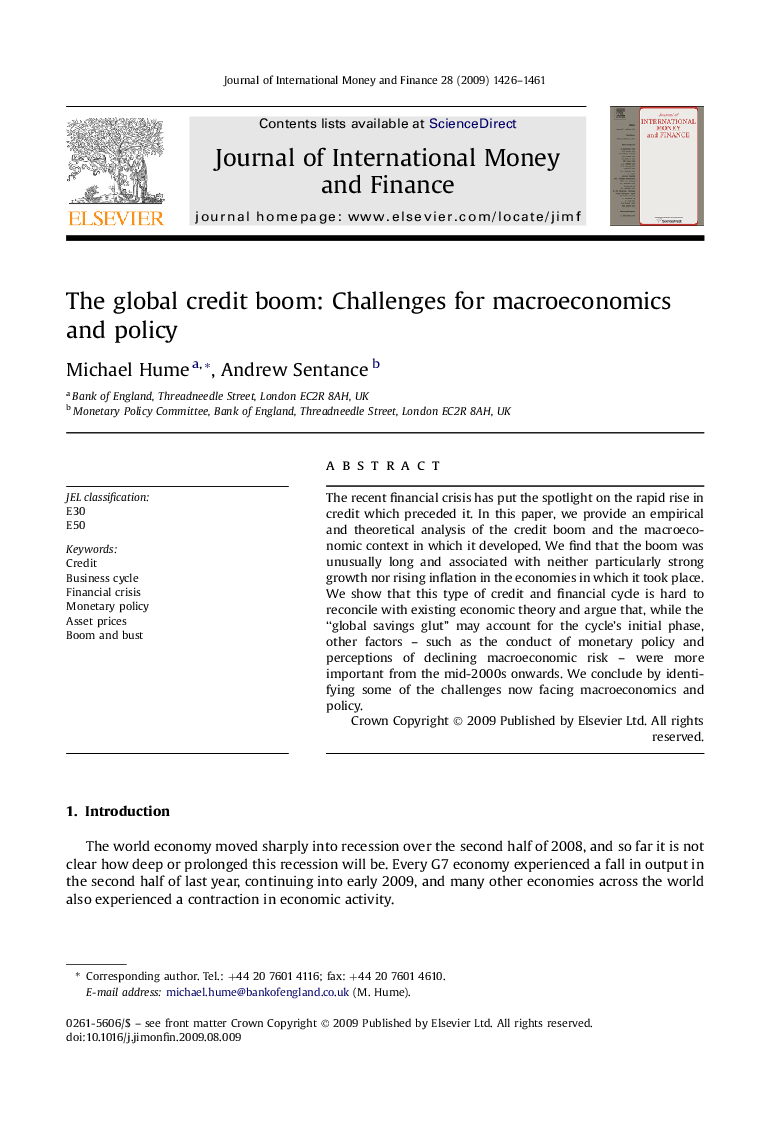| Article ID | Journal | Published Year | Pages | File Type |
|---|---|---|---|---|
| 964261 | Journal of International Money and Finance | 2009 | 36 Pages |
The recent financial crisis has put the spotlight on the rapid rise in credit which preceded it. In this paper, we provide an empirical and theoretical analysis of the credit boom and the macroeconomic context in which it developed. We find that the boom was unusually long and associated with neither particularly strong growth nor rising inflation in the economies in which it took place. We show that this type of credit and financial cycle is hard to reconcile with existing economic theory and argue that, while the “global savings glut” may account for the cycle's initial phase, other factors – such as the conduct of monetary policy and perceptions of declining macroeconomic risk – were more important from the mid-2000s onwards. We conclude by identifying some of the challenges now facing macroeconomics and policy.
